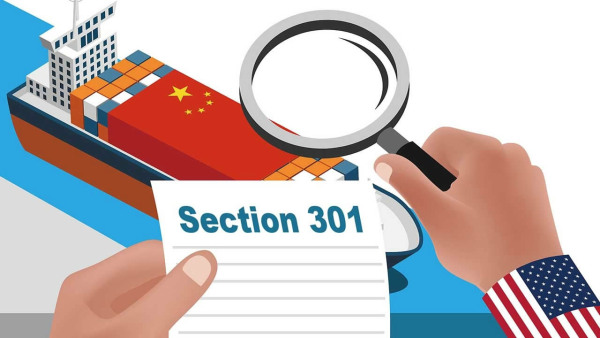On May 14, 2024, the office of the United States Trade Representative (“USTR”) issued its long awaited report: Four-Year Review Of Actions Taken In The Section 301 Investigation: China’s Acts, Policies, And Practices Related To Technology Transfer, Intellectual Property, And Innovation. Also made available were an accompanying Press Release and a White House Fact Sheet.
Those hoping for relief from the existing China 301 tariffs will not find much encouragement. On balance, these materials reflect a conclusion that the unfair practices giving rise to the China 301 tariffs continue unabated and that additional proposed U.S. actions are warranted. These proposed actions include the following:
- China 301 tariffs to remain in place.
- China 301 tariff increases to be imposed in the below strategic sectors:
| Battery parts (non-lithium-ion batteries) | Increase rate to 25% in 2024 |
| Electric vehicles | Increase rate to 100% in 2024 |
| Facemasks | Increase rate to 25% in 2024 |
| Lithium-ion electrical vehicle batteries | Increase rate to 25% in 2024 |
| Lithium-ion non-electrical vehicle batteries | Increase rate to 25% in 2026 |
| Medical gloves | Increase rate to 25% in 2026 |
| Natural graphite | Increase rate to 25% in 2026 |
| Other critical minerals | Increase rate to 25% in 2024 |
| Permanent magnets | Increase rate to 25% in 2026 |
| Semiconductors | Increase rate to 50% in 2025 |
| Ship to shore cranes | Increase rate to 25% in 2024 |
| Solar cells (whether or not assembled into modules) | Increase rate to 50% in 2024 |
| Steel and aluminum products | Increase rate to 25% in 2024 |
| Syringes and needles | Increase rate to 50% in 2024 |
- An exclusion process to be established targeting specified machinery used in domestic manufacturing.
- 19 temporary exclusions to be established for certain solar manufacturing equipment to support investment in U.S. solar manufacturing.
- Allocation of additional funds to CBP for the greater enforcement of the section 301 actions (and similar trade actions).
- The report notes the existing China 301 exclusions scheduled to expire on May 31, 2024, but provides no discussion of a mechanism for seeking an extension or new exclusions (other than those for certain machinery used in domestic production noted above).
Next week, the USTR will issue a Federal Register notice announcing procedures for interested persons to comment on the proposed China 301 modifications, including information concerning an exclusion process for machinery used in domestic manufacturing. It is expected that the Federal Register Notice will provide additional detail on the above proposals as well as timing.
Please do not hesitate to contact any of our attorneys to discuss the impact of the above developments on your business.





